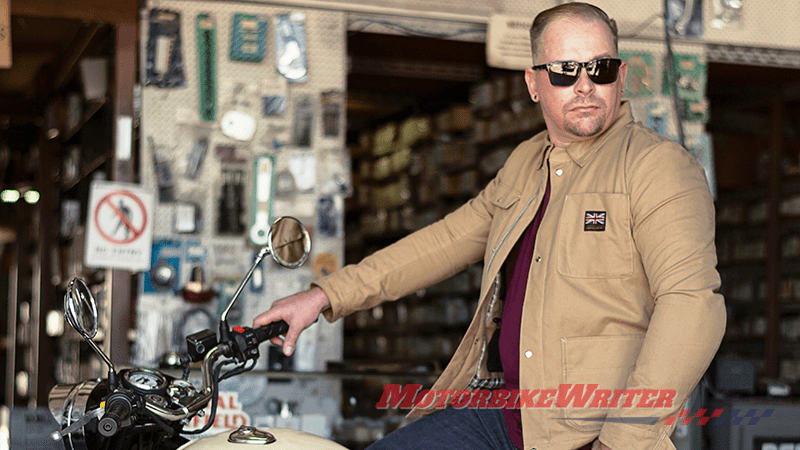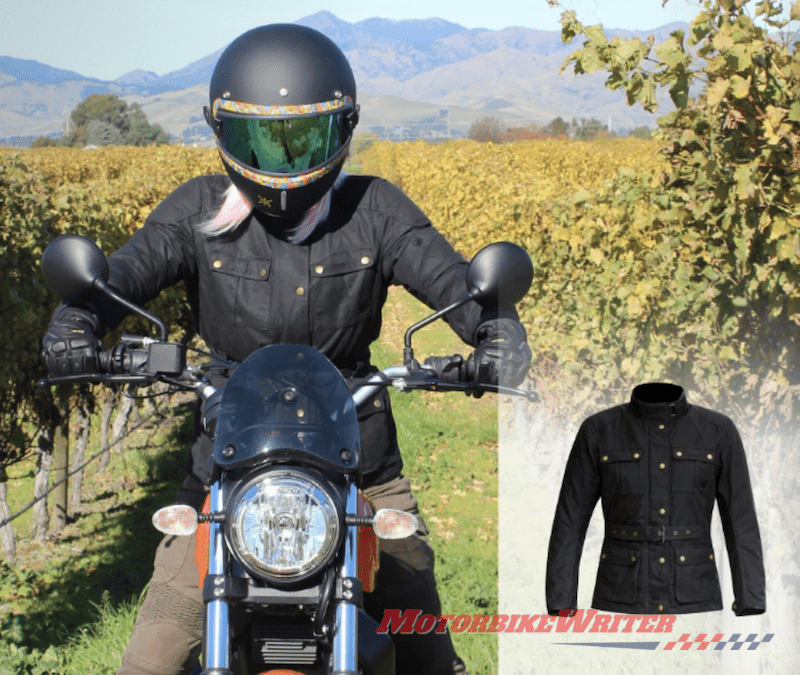The fastest-growing sector of the motorcycle clothing market is leisure safety gear while traditional Cordura and leather suits are decreasing in demand, says a British motorcycle clothing brand.
The trend mirrors growth in retro and naked bikes and the decrease in sportsbike popularity, says Merlin major shareholder Steve Franklin.
He and his Yamaha-loving sons, James and Patrick, flew out from Manchester recently to meet Australian retailers and distributors Link International.
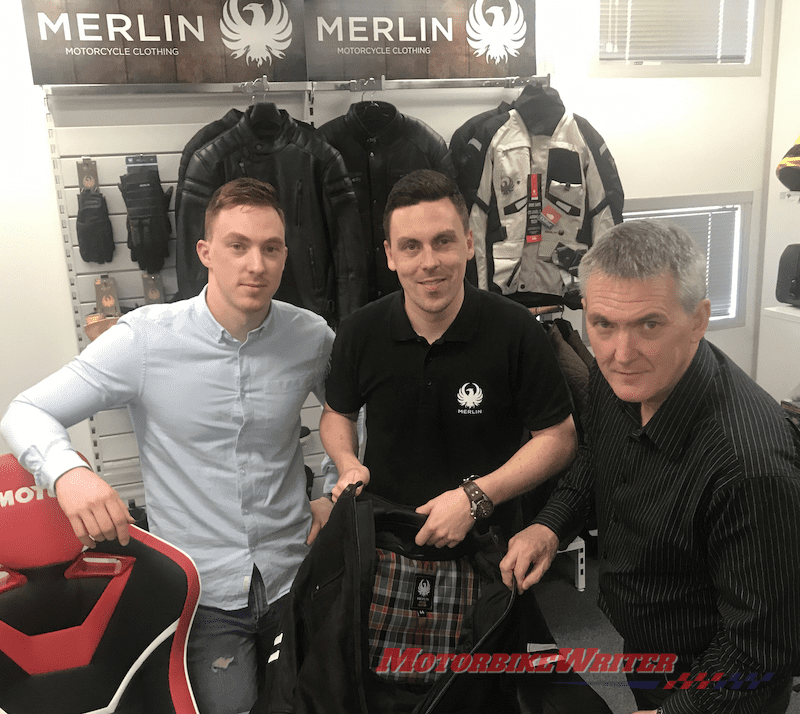
The Merlin executives also claim modern riders want clothing made with sustainable materials by manufacturers with integrity.
Steve says Merlin products are CE-approved, materials are sourced directly from experts and each manufacturer is inspected frequently for quality control.
“I want to be able to sleep at night,” he says, claiming they have only 0.97% returns on faulty gear and that one-third of that is down to user error.
Click here for the Merlin catalogue.
Leisure trend
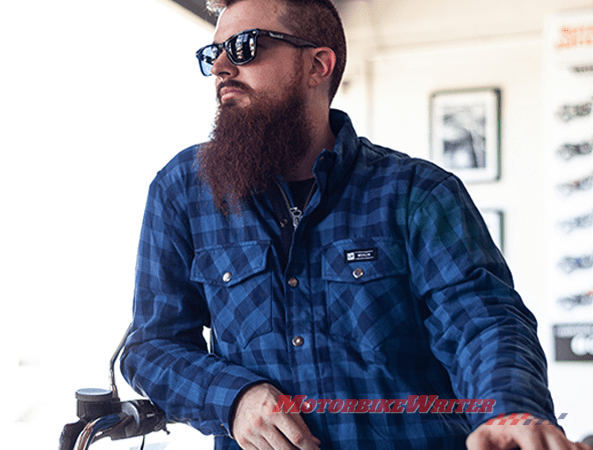
They say the biggest market for motorcycle gear is now “leisure moto”.
Steve explains that it is like Nike’s “athleisure” range which appeals to people who want to look like an athlete but be comfortable.
“Similarly, leisure moto has all the safety gear but riders are able to go into a pub and not look like they’ve just had their knee down,” Steve says.
“It’s something you can wear all day.”
Heritage rider gear that reflects neo-classic motorcycles, such as the Ducati Scrambler Full Throttle that Steve rides, represents 45% of the market.
Steve says tech wear such as Cordua adventure suits and leather race suits are only 37% of the market and decreasing while the other two sectors are in “double-digit growth”.
That adds up to more than 100% of the market, but Steve says there is a lot of overlap where riders wear items from each section.
Female riders
Steve says they recognise that female riders are growing in number, now about 15% of all riders in the UK, almost 20% in USA and more than 10% here.
He says their women’s range was greater than 20% of their stock, but they pulled back.
However, James says they are now expanding their women’s range again.
“It’s a small part of the market but there are many more women’s groups emerging,” he says.
“They don’t all want to wear pink. They don’t want traditional riding gear but something that is a bit fashionable.
“Our feedback is that most brands just do dumbed-down versions of men’s gear.
“We recognise that women’s fit is different, even in women’s boots.”
Merlin employs fashion industry expert Melanie Field to help with women’s sizing so “it’s not just a small version of men’s gear”.
“She also has an eye on what colours and styles are currently fashionable,” James says.
Sustainability
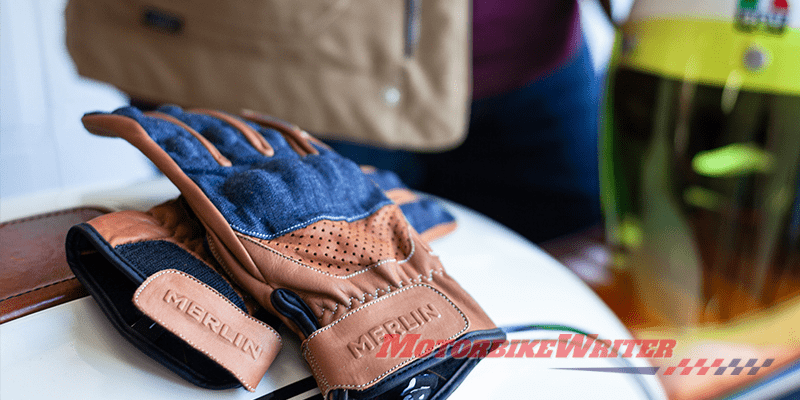
Riders are now seeking sustainable, organic materials directly sourced from reputable manufacturers, Steve says.
“The speed of development in organic materials is really gathering pace,” he says.
James points out that 76% of the materials they use is bought directly from “the experts in the field” who have their own tanneries or textile mills to ensure rigorous quality control is met.
“This ensures we have control of the quality,” he says.
Merlin also employs local inspectors in each of the countries where their products are manufactured to guarantee integrity and quality control.
They produce 60% of their gear in Pakistan and the rest in Portugal, Indonesia, Vietnam, China and India.
“We don’t manufacture anywhere that we don’t don’t have someone on site to make regular inspections,” Steve says.
He and his sons also spend 16 weeks a year doing inspection tours of manufacturing sites.
They say 75% of profits are turned back into the company to improve quality.
Safety standards
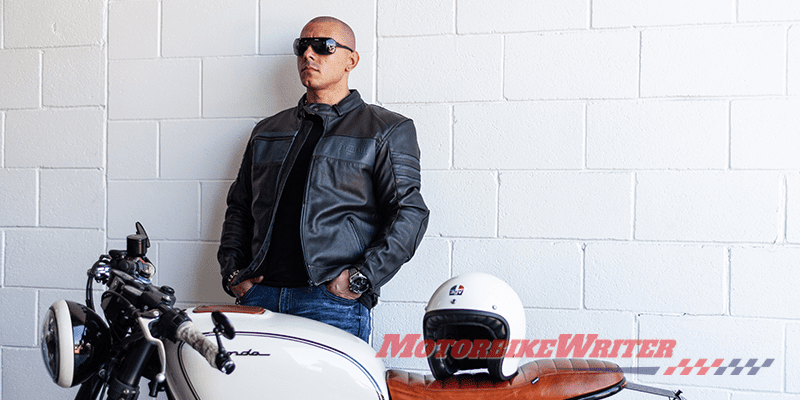
Steve says rigid European CE approval standards are “both a curse and a blessing”.
“The cost of gaining CE approval is onerous at $10,000-$15,000 per product,” he says.
“We have to test the smallest and largest sizes and one in the middle, plus each different colour.”
Link International Merlin brand manager Ron Grant also points out that Merlin doesn’t just use high-quality safety materials in the impact areas specified for CE testing, but throughout their garments.
However, James says CE is also a blessing by making it “really difficult to get into this industry”, so it is “flushing out the bad quality and those operating in the black market”.
He says gaining CE approval was easy for them because they were exceeding the full testing process before CE became mandatory last year for manufacturers operating in Europe.
About Merlin
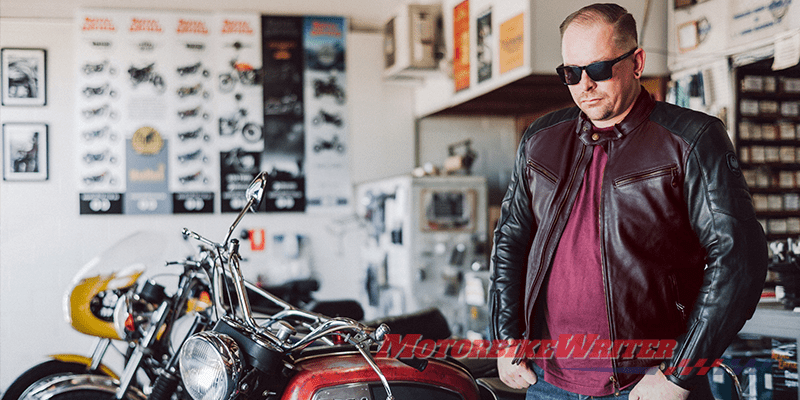
Merlin was registered in 2011 and started trading in 2012.
The name and logo come from “merle” which is French for blackbird.
It is 100% owned by the company’s 200 full-time staff who become shareholders after six months.
Steve’s background was in turning around ailing businesses.
“I just wanted to start a business then get someone to take it over,” he says.
“But once my sons entered the business, we found we had a passion for making good products and not just for business,” he says.
“We don’t cut corners. We wanted to make the best quality product we could with the technology and materials available.
“We’re always improving the product so it is relevant and exceeds customer expectations.”


